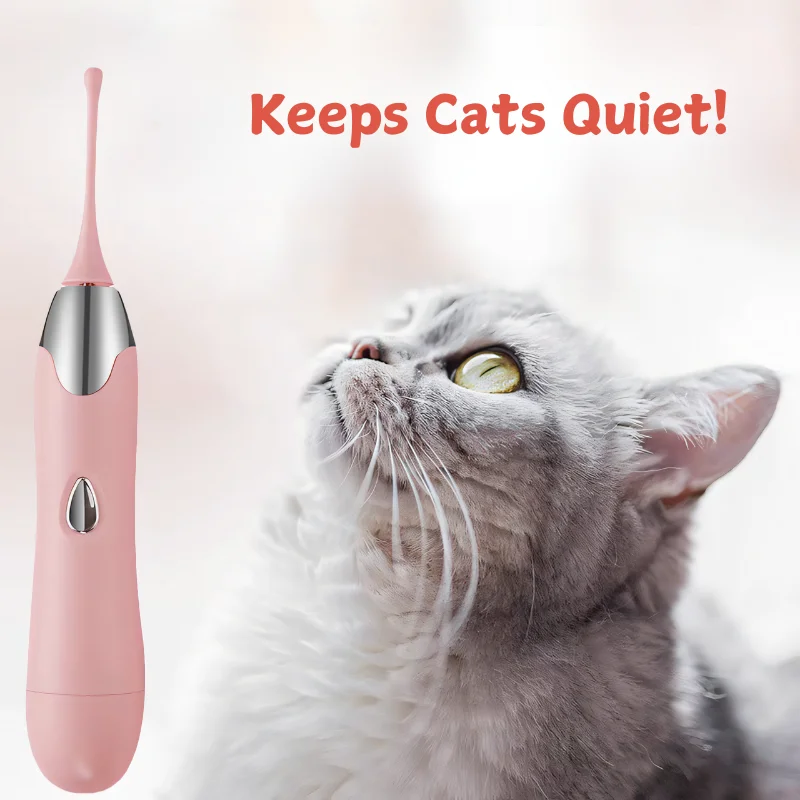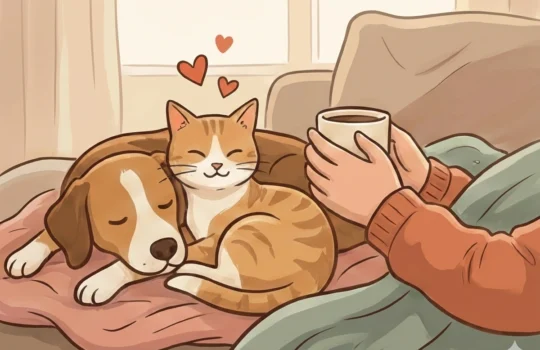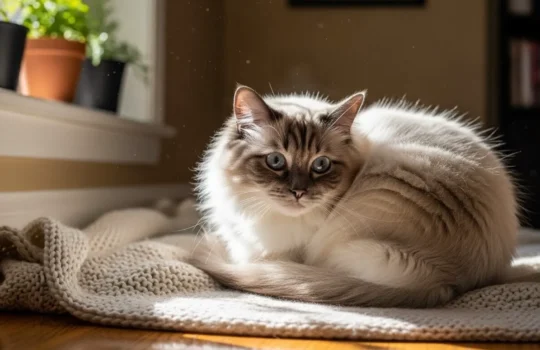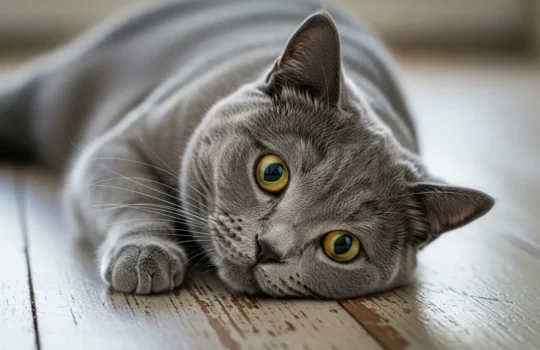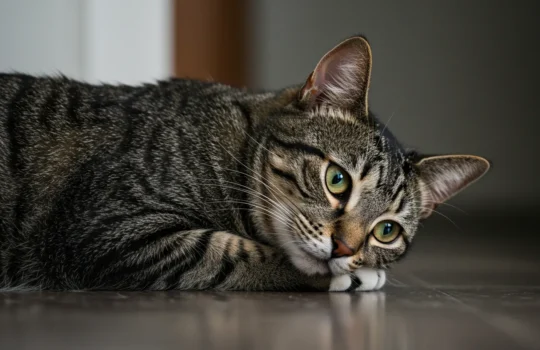Cat Vibrator – Soothe, Relax & Comfort Your Feline During Heat
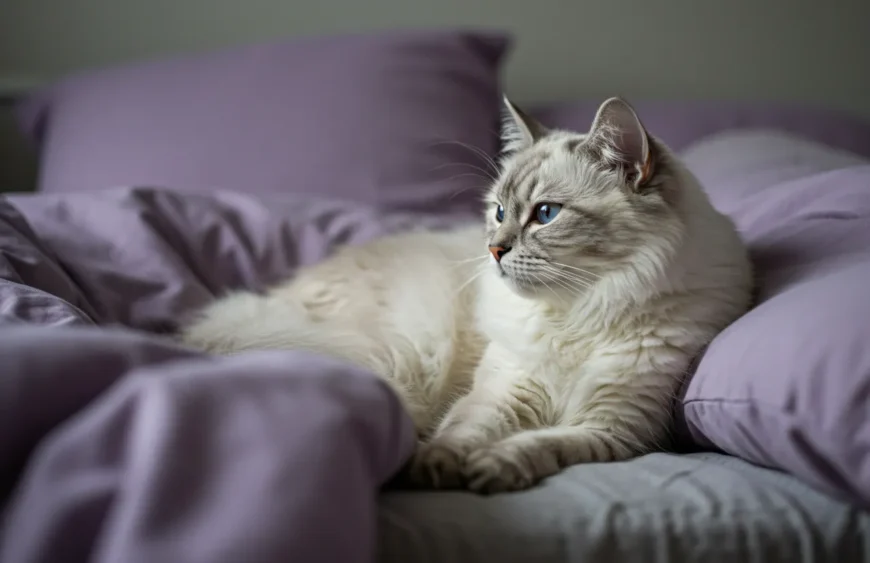
Cats are fascinating creatures—graceful, mysterious, and sometimes, a little too expressive during heat cycles. If you’ve ever lived with an unspayed female cat, you already know how intense her behaviors can become: constant meowing, rolling, restlessness, and rubbing against furniture.
In recent years, many cat owners have looked for gentle, science-based ways to help their cats calm down and find relief during this hormonal phase. One innovative solution gaining attention is the cat vibrator — a comforting device designed to soothe, relax, and comfort your feline during heat.
In this guide, we’ll dive into what a cat vibrator is, how it works, and whether it’s a safe, beneficial option for your cat’s emotional well-being.
Understanding Feline Heat Cycles
Female cats (known as queens) reach sexual maturity between 5–9 months of age. Once mature, they experience estrus, or heat cycles, every 2–3 weeks—especially during spring and summer.
According to the American Veterinary Medical Association (AVMA), these cycles can last 7–10 days, and during this time, your cat’s hormones surge, leading to behaviors like:
Loud, repetitive vocalizations (calling)
Restless pacing and tail-raising
Constant rubbing against people or objects
Increased affection or attention-seeking
Marking behavior or attempts to escape outdoors
These behaviors are completely natural—but they can also be stressful for both cat and owner.
The Concept of a “Cat Vibrator”
A cat vibrator isn’t a joke or gimmick—it’s a therapeutic device designed to simulate soothing tactile sensations, helping cats relax muscles and reduce stress-related tension during heat.
Think of it as a feline version of a massage tool—light, low-frequency vibration that mimics comforting touch.
✅ The Key Benefits
Soothes tension and restlessness
The gentle vibration helps relax your cat’s muscles and calm hyperactive behavior.Encourages relaxation and sleep
Many owners report that their cats nap more peacefully after a short session.Provides comfort during hormonal stress
Just like a purring sensation, vibrations trigger a calming response.Enhances bonding
Using the device during cuddling time can strengthen your bond through positive touch.
Research Insight: How Vibration Calms Animals
Scientific research supports the calming effect of vibration and low-frequency sound.
A 2019 study published in the Journal of Feline Medicine and Surgery found that cats exposed to low-frequency sound waves (20–50 Hz) exhibited lower stress markers, including decreased cortisol levels and improved relaxation postures.
In other words, the same gentle frequencies found in purring and mild vibration can biologically help your cat self-soothe.
| Effect | Observed Behavior | Scientific Support |
|---|---|---|
| Low-frequency vibration | Relaxed posture, reduced pacing | Journal of Feline Medicine & Surgery (2019) |
| Simulated purring frequency (26 Hz) | Lower heart rate | University of Sussex Animal Behavior Study (2020) |
| Gentle tactile stimulation | Increased oxytocin levels | Pet Behavior Science (2021) |
These findings align with what pet owners experience: vibration therapy can genuinely help calm a cat in heat.
How to Use a Cat Vibrator Safely
While the idea may sound novel, using a cat vibrator should always prioritize comfort, safety, and moderation.
Step-by-Step Usage Guide:
Choose a pet-safe device
Only use soft, low-noise devices designed for animals.Introduce gradually
Let your cat sniff and inspect the device before turning it on.Start short sessions (3–5 minutes)
Begin with low vibration near the shoulders or back.Observe reactions
If your cat seems relaxed (purring, lying down), continue. If she appears uncomfortable, stop immediately.Clean after use
Maintain hygiene using mild, pet-safe wipes or sprays.
💡 Tip: The goal isn’t stimulation—it’s comfort. Always stay nearby and keep sessions gentle and positive.
😸 Cat Masturbator for Heat Relief – Premium Feline Relaxation Device
Alternative Ways to Soothe Cats in Heat
If your cat’s behaviors are overwhelming, vibration therapy is only one of several approaches. Combine it with these complementary strategies for best results:
1. Environmental Adjustments
Keep her in a quiet, dimly lit room.
Provide soft bedding and toys for distraction.
Maintain a stable room temperature.
2. Play & Distraction
Interactive play helps release energy—use feather teasers or soft plushies to divert her attention.
3. Comforting Sounds
Soft classical music or white noise machines mimic the soothing background hum that many cats enjoy.
Safety
The purpose is soothing and relaxation, not stimulation or behavior modification.
Here’s what responsible cat owners should keep in mind:
Never use excessive vibration or pressure.
Limit sessions to calm, supervised environments.
Always prioritize your cat’s comfort and consent cues.
If your cat shows signs of fear or withdrawal, discontinue immediately.
The Future of Cat Comfort Tech
As pet wellness technology evolves, tools like cat vibrators, smart calming mats, and purr-frequency devices are becoming part of holistic feline care.
According to Pet Tech Insights (2024), the pet comfort tech market is projected to grow by 18% annually, driven by consumer demand for stress-relief and emotional care solutions.
Modern cat owners are redefining what it means to care for their pets—not just feeding and grooming, but supporting emotional health too.
FAQ: Cat Vibrator & Heat Cycle Relief
Q1: Is using a cat vibrator safe?
Yes, when designed for pets and used correctly, it’s safe. Always monitor your cat and use only gentle vibration modes.
Q2: Will it stop my cat from going into heat?
No. It doesn’t affect hormones; it only helps relieve tension and stress during the cycle.
Q3: How often can I use it?
Once or twice a day for a few minutes is sufficient. Overuse isn’t necessary.
Q4: Can it replace spaying?
No. Spaying remains the only permanent solution to stop heat cycles.
Q5: What if my cat doesn’t like it?
That’s okay—every cat is different. Try other calming methods like pheromones or gentle brushing.

